Check out the full article: Eco Fashion, Smart Shopping
*This article is written by Peter Imbong from Rappler on March 30, 2013*
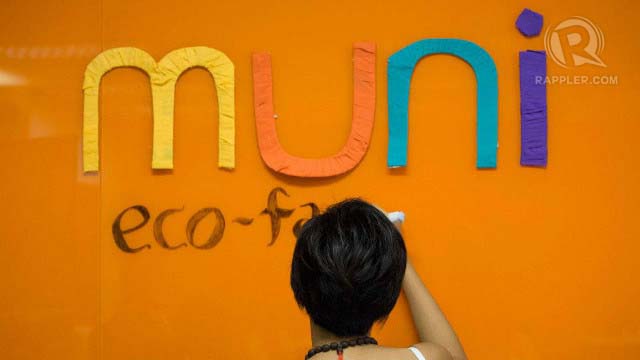
MANILA, Philippines - Thinking about a purchase is something all shoppers do. But more than the size of that shirt, the discount you hope to get, or the amount you’re about to shell out, there are more important things that a true conscious shopper should think of.
“A conscious shopper is a person who asks questions about the things they buy,” says Jen Horn, creator and founder of Muni PH, an online guide for more conscious shopping and everyday living. In an eco-fashion workshop held at Co.Lab in Pasig City last March 11, Muni PH, together with the people behind Rags2Riches, Jacinto & Lirio, and Lumago Designs—all local social enterprises—spoke about eco-fashion and how to be wiser shoppers.
Think before you buy
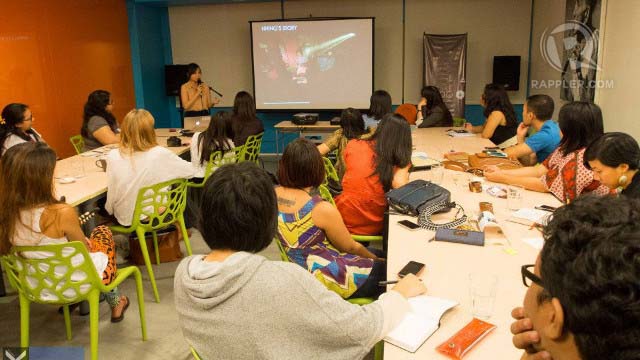
LEARNING TO SHOP. Muni PH held an eco-fashion workshop

MUNI MOVER. Jen Horn, founder of Muni PH, addresses workshop participants
“We don’t really need a lot of the stuff we buy and most of the time it just winds up collecting dust in our closets,” says Horn. “Before buying, always assess if you need something.”
A lot of energy goes into creating one product. So if you can prolong the life of that one product that would have otherwise been discarded by someone else, then it makes it more eco-friendly.
“Every product has an embodied cost,” explains Horn. “This is the total energy that goes into making that product. If you buy pre-loved stuff, you are maximizing the energy that went into producing that certain item. If you can, choose second-hand items, clothes from the ukay-ukay, or swap with someone.”
Support local companies that do it right
If you do have to buy something new, as much as possible, buy something that’s locally made and eco-friendly. Horn advises to “look at the label and see if it’s made in the Philippines. Because when you buy locally-made products, it’s not flown from somewhere else so the fuel isn’t consumed by the importation.” In addition, local materials are used, and it benefits the local workers that create the product.
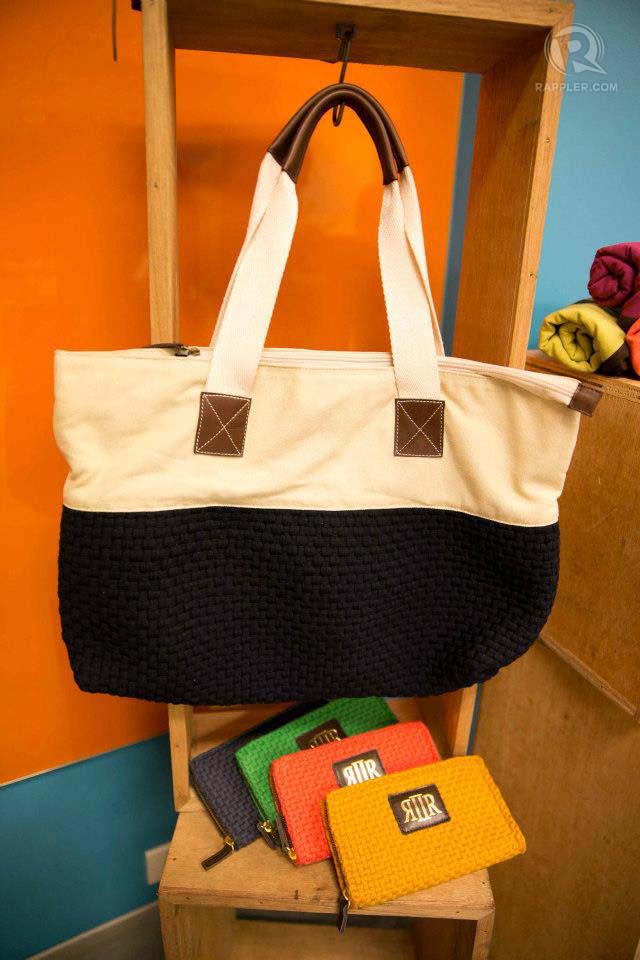
ECO-PRETTY. Bags and pouches by Rags2Riches are great purchases for the eco-fashion conscious

ECO FASHIONISTA. Rags2Riches founder Reese Fernandez-Ruiz talks to workshop participants
According to Reese Fernandez-Ruiz of Rags2Riches, a pioneer social enterprise than turns scraps of cloth into high-end bags, “The important part is that you know there is a person behind your product. It’s not just a faceless brand. When you buy it, you’re creating an impact on something or someone. And that comes back to you in the form of a beautiful product or a better planet.”
Let them know you want change
“Consumers can start by looking up their companies,” says Fernandez. “Nowadays, more and more consumers are trying to identify with the brands they patronize so they look them up.”
And when you think more could be done, “make your voice heard,” suggests Noreen Bautista of Jacinto & Lirio. They make bags and journals from plant leather derived from the water hyacinth.
“When you, as the consumer, voice out to companies what you want, and how you want things to be done the right way, that will force the business-owners to do the right thing.”
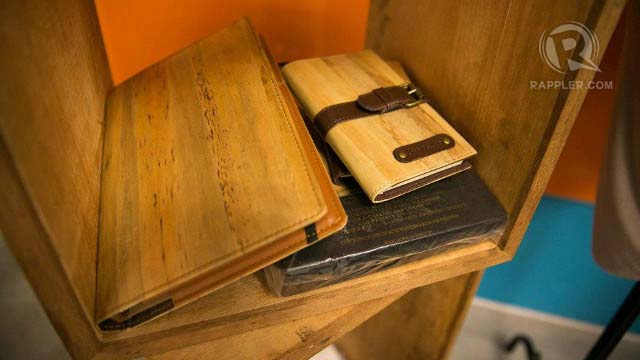
ECO-FRIENDLY NOTES. Jacinto & Lirio notebooks are made of water hyacinth

STYLISH AND EARTH-FRIENDLY. Noreen Bautista, co-founder of Jacinto & Lirio, proudly holds up one of their bags
Ask companies if they have eco-friendlier alternatives or if they could try to adjust their ways. “Somebody in their head office will hear or read that,” says Fernandez, “and they will realize that a lot of people are asking for eco-friendly alternatives. They will make them.”
Start small
It doesn’t really need a complete lifestyle change to become a more conscious shopper. “Even if you just compromise for something in between, what matters is that you’re trying,” says Horn. “Simply integrating these changes in your lifestyle and being aware is okay.”
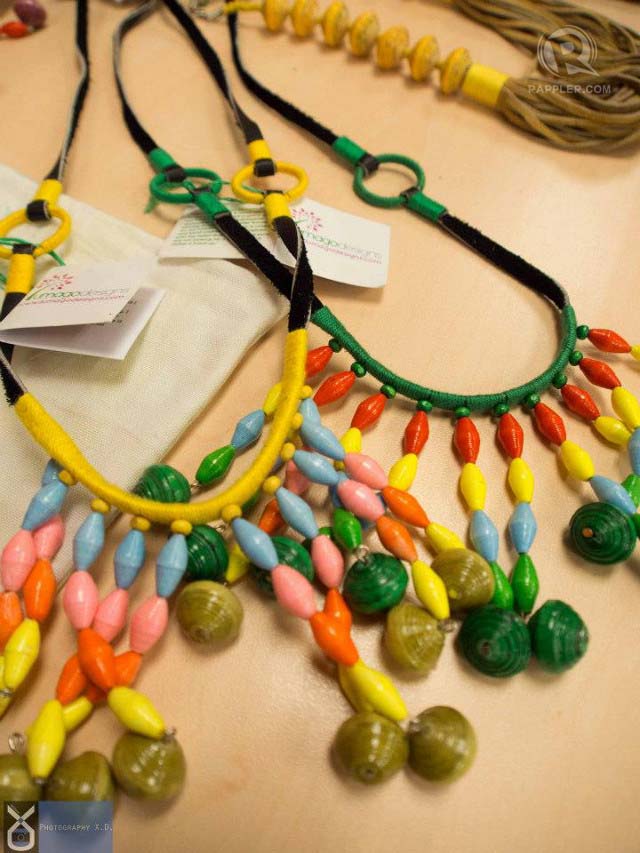
EARTH-LOVER ACCESSORIES. Lumago Designs make beautiful, hand-crafted jewelry from upcycled materials

ECO-SHOPPING ADVOCATE. Whitney Fleming, founder of Lumago Designs, talks to workshop participants
Whitney Fleming, an expat and the woman behind Lumago Designs—another social enterprise that manufactures accessories from upcycled materials—suggests doing it one small step at a time.
“Bring it down to the simplest level. I get my basic things at the grocery store when I know I can’t buy them at other places. But I always make the effort to go to the local market and buy food that I know comes from small business owners.” - Rappler.com

